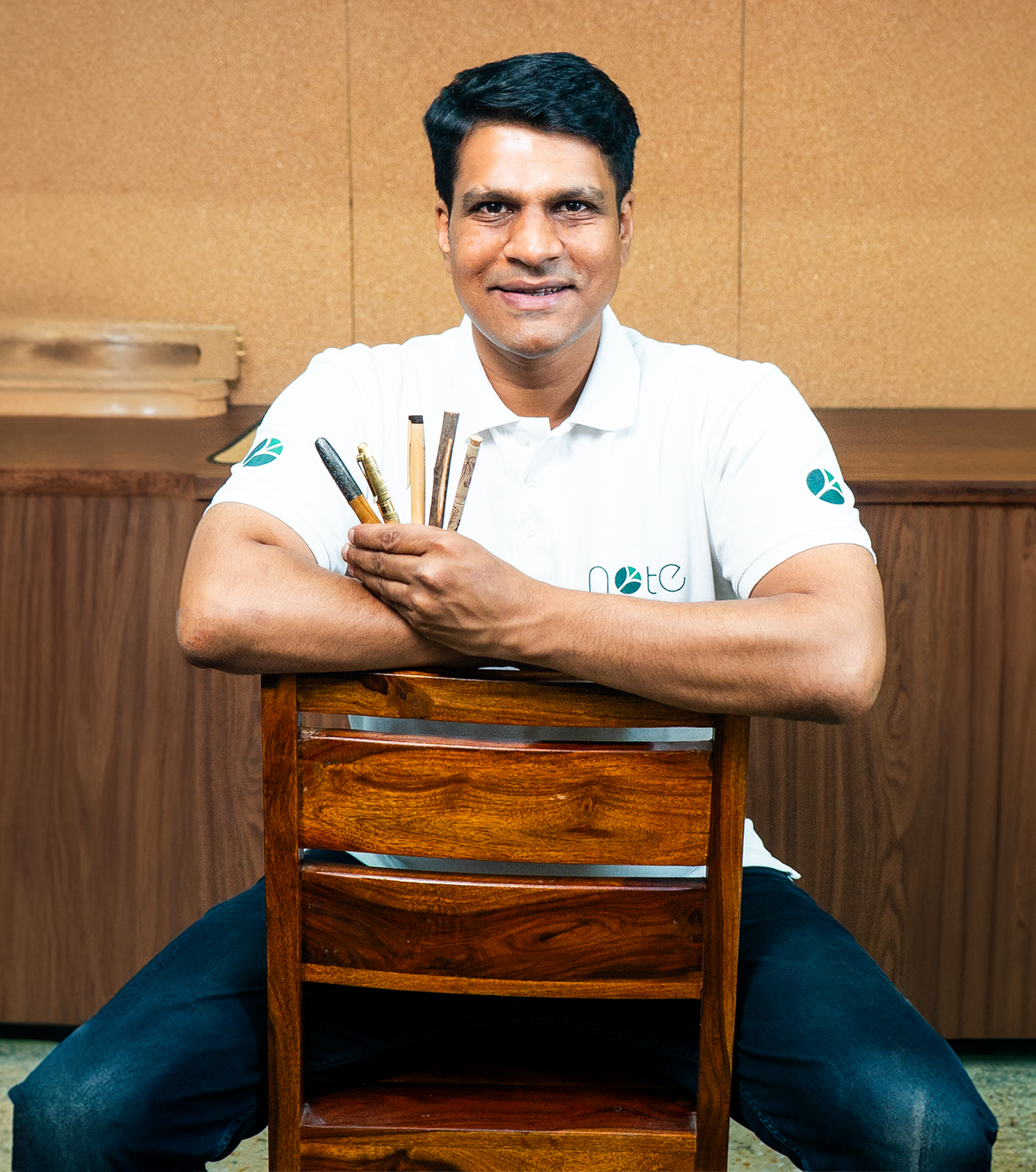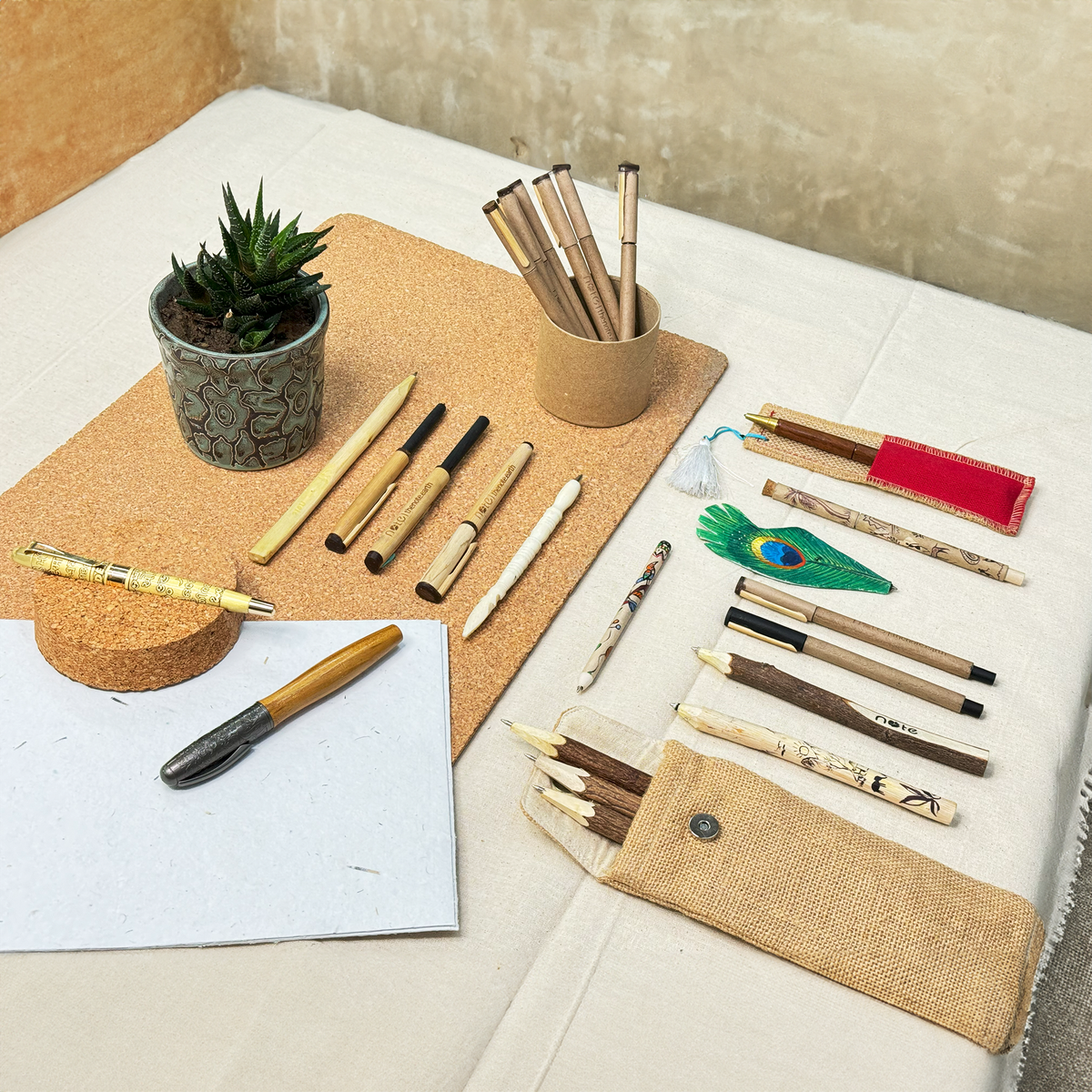[ad_1]

The NOTE pen comes with a recycled paper refill, and non-toxic ink and tip
| Photo Credit: Special Arrangement
Did you know that over 50 billion ballpoint pens are trashed every year? And that 95% of a conventional pen is made of plastic, and the ink and the tip comprise only 5%. Over seven years ago, New Delhi-based Saurabh H Mehta set out on a mission to craft a pen sans plastic and has now launched what he claims is the world’s first 100% biodegradable pen.
With a background in sustainability and innovation, and after working in the energy access sector across South and South-East Asia, Saurabh returned to the capital in 2017 to step into his family business of plastic ballpoint pens.

Saurabh H. Mehta
| Photo Credit:
Special Arrangement
On recognising the environmental implications of disposable plastic pens, he steered the business towards sustainability, founding bioQ, a company focussed on eco-friendly stationery. “Our work at bioQ, especially our innovative plantable stationery, garnered significant recognition, and I recently started NOTE (No Offence to Earth), as a brand under bioQ, that challenges the status quo of plastic based writing instruments,” says Saurabh, adding that the idea is to prove that the 95% plastic in pens is avoidable and that it can be replaced with recycled paper and other sustainable materials.
“The goal was to develop a pen that not only drastically reduces environmental impact but also fits seamlessly into the daily routines of consumers,” he says.
The NOTE pen comes with a recycled paper refill, and non-toxic ink and tip. “While we’ve yet to find a fully sustainable replacement for the metal pen tip, we’ve made it easily removable after use, opening up possibilities for reuse and contributing to the pen’s circularity,” says Saurabh, who adds that the refills are customisable and can be made in any length and diameter. As for the pen’s exterior, the team is exploring a variety of material including paper tubes, bamboo, and metal.

The team is exploring a variety of materials including paper tubes, bamboo, and metal for the pen’s exterior
| Photo Credit:
Special Arrangement
Taking us through the design process, Saurabh explains that designing the body and cap presented several sustainable options and designs fairly quickly. “However, the real challenge was in reinventing the refill — the core of any pen traditionally reliant on plastic. The industry standard had settled around a minimum of 10% plastic for functionality, but we aimed for complete elimination. To us, the difference between 1% and 0% plastic was monumental; it was all or nothing.”
The team’s journey involved numerous experiments and trials over four years, particularly with crafting a recycled paper cylinder that needed a precise 2mm internal diameter. “A significant part of our innovation was ensuring this recycled paper cylinder could hold ink without leaking or absorbing, all without using plastic — an endeavour not successfully accomplished before,” says Saurabh who tested multiple material, many of which including wheat straw failed due to reactions with the ink that expedited drying.
“Each prototype underwent a four-month accelerated aging test to verify if it could meet the 18-month shelf life industry standard. Our breakthrough came with a vegetable oil-based solution, refined through a patent-pending process, achieving an 18-month shelf life,” he says, adding that applying a thin layer of vegetable oil on the refill’s inner surface creates a barrier between the ink and paper, ensuring that, post-use, the refill degrades naturally.
The team’s journey involved numerous experiments and trials over four years
| Photo Credit:
Special Arrangement
However, replacing the refill and ensuring shelf life were not their only hurdles. “The next challenge involved inserting the ball pen tip into the paper refill filled with ink, ensuring no paper particles detached and clogged the tip, an issue that is easily avoidable with plastic refills due to their durability and flexibility,” adds Saurabh.
Saurabh says there are a slew of other hurdles he continues to face. The misclassification of single-use plastic, for instance. “Pens are not typically classified as single-use plastics, even though they’re used for an average of just two hours before disposal, underscoring the need for re-evaluation of their environmental impact,” he says.
“The industry trend towards complicating pen designs rather than simplifying them exacerbates sustainability issues,” says Saurabh who now plans to work on designing a range of eco-friendly writing instruments, including gel pens, markers, and sketch pens.
The pens are priced between ₹25 and ₹500 on https://thenote.earth/
[ad_2]
Source link





